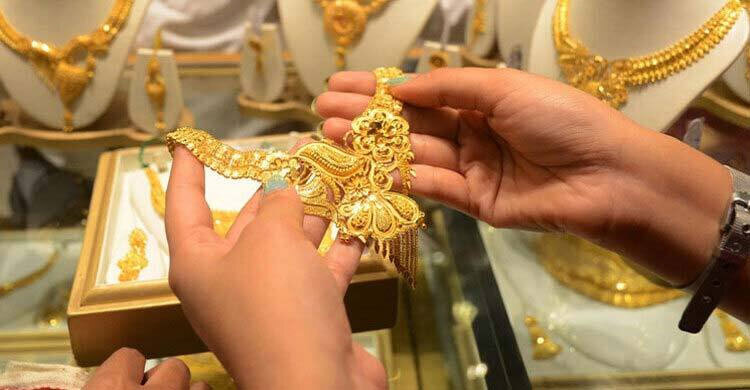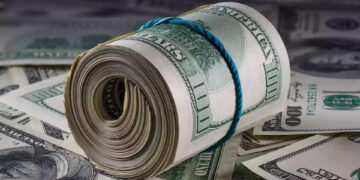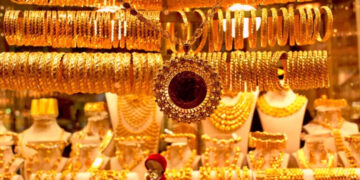The National Board of Revenue (NBR) has stated that approximately 32,000 jewelry shops in the country do not pay Value Added Tax (VAT). According to the organization, out of a total of 40,000 jewelry shops, only 8,000 pay VAT. In the last fiscal year, around 1 billion BDT was collected in VAT from these shops. The issue came into discussion after the revenue board took the initiative to install Electronic Fiscal Devices (EFD) or Sales Data Controllers in retail and wholesale stores across the country to monitor sales. The revenue board believes that installing these devices could help prevent VAT evasion and increase revenue collection. Bangladesh has one of the lowest VAT collection rates globally in terms of Gross Domestic Product (GDP). For the past 15 years, the government has been trying to bring retail sellers under the VAT system by introducing electronic sales registers to increase overall tax collection.
However, many shops still do not have these devices. As part of efforts to change the situation, the National Board of Revenue (NBR) recently held a meeting to bring 23,000 members of the Bangladesh Jewelers Association (BAJUS) under the EFD system. So far, they have managed to install only 1,000 EFDs in jewelry shops. The revenue board has requested BAJUS to send letters to all shops for VAT registration and EFD installation.
BAJUS General Secretary Badal Chandra Roy told that they want to bring all such businesses under the tax system to ensure fairness for everyone. He said, “Since 2021, we have been trying to bring all jewelry shops under VAT and tax regulations. We have urged the revenue board to ensure compliance.” He further stated, “Due to the absence of these devices, VAT-evading shops sell jewelry at lower prices, making it difficult for VAT-paying businesses to compete.” According to government data, the annual demand for gold in the country ranges from 20 to 40 tons. The Ministry of Commerce reports that nearly 80% of this demand is met through smuggling. BAJUS estimates that gold worth approximately 73,000 crore BDT is smuggled into the country every year. Currently, jewelry shops are required to pay 5% VAT on sales. Bringing all shops under taxation could lead to significant VAT collection, increasing government revenue.
In this situation, the National Board of Revenue (NBR) plans to install Electronic Fiscal Devices (EFDs) in all jewelry shops in Dhaka and Chattogram divisions as the first phase, an NBR official said. Abdur Rouf, a member of NBR’s VAT Policy Division, told “It’s not just jewelry businesses; many other sectors also remain outside the VAT system.” “We are now taking steps to bring every sector under VAT regulation, starting with jewelry shops. BAJUS has assured us that they will cooperate with NBR.” Khandaker Golam Moazzem, Research Director of the Centre for Policy Dialogue (CPD), told “Bringing jewelry businesses under taxation is an easy task.” In his opinion, “The revenue board has yet to complete this simple task, which reflects the weakness of the government’s tax collection efforts.” He also pointed out that collecting only 1 billion BDT in VAT from the jewelry sector annually seems unrealistic given the actual volume of jewelry sales in the country. He stated, “The real amount should be much higher.”
He also believes that it should be investigated whether those responsible for VAT collection from jewelry shops are benefiting from these businesses in any way. Khandaker Golam Moazzem further stated, “Despite significant revenue collection potential in remote areas, structural issues are hindering proper VAT collection from many businesses. NBR officials need to increase their presence at the field level.” Additionally, the CPD Research Director urged authorities to expedite the process of collecting revenue from these businesses through digital means. Currently, the number of registered VAT payers in the country is just over 500,000, as a large number of businesses remain outside the VAT system.
Source: The Daily Star
Share via:

















